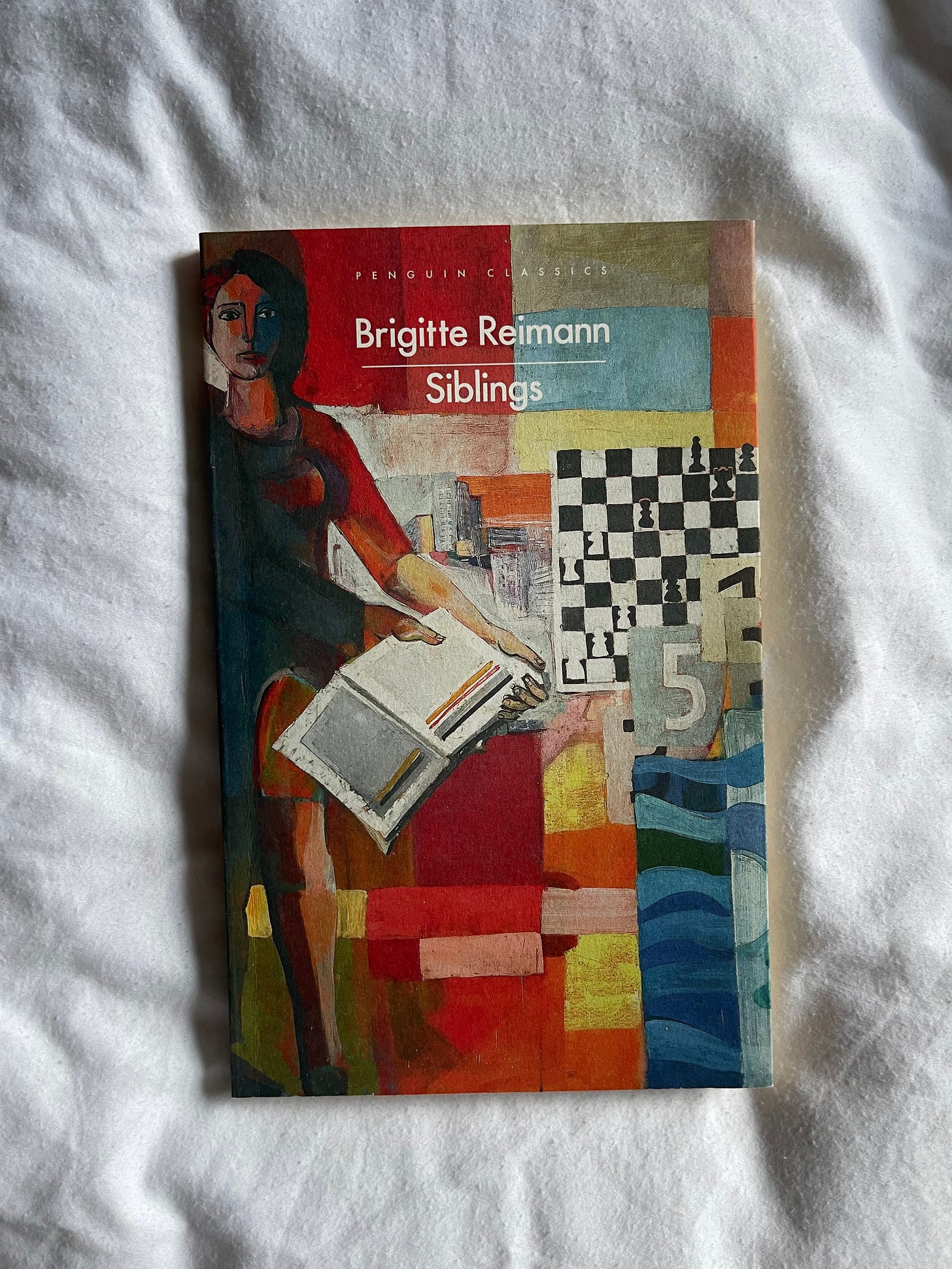Another beautiful book from my favourite bookshop in Brighton. My second English translation of a novel by a German writer (read about my absolute fave here).
I’ve been thinking about translators recently and the incredible work they do translating books from native tongue into English (which is my first language) and making it possible for me to experience books that would never have been accessible to me. I wonder if we lose some of the magic in the translation and how hard they work at getting the novel’s true voice across to us. Lucy Jones is the translator for Siblings (Die Geschwister) and this article about her love for Brigitte’s novels was wonderful to read.
“What do you find so compelling in the style – what draws you to her writing?
Oh, it’s her voice! She has this incredibly captivating way of telling stories. She can take you into a panoramic view of a situation; she moves around with great agility. And she’s able to inject the right amount of scepticism, too, with quite a modern sense of humour.”
Brigitte Reimann1 (1933-1973, East Berlin2) lived in East Germany, officially known as the German Democratic Republic (GDR) which was separated from the Federal Republic of Germany (FRG) commonly known as West Germany, by the Berlin Wall.
I did not get to study a lot of German history at school growing up in South Africa as we were mainly occupied with learning about Britain, our colonisers. (Other than the usual ‘Nazis are BAD’). This book was my first experience of learning about German families and their struggles caused by the politics of a divided nation at that time.
The book covers the relationship between brother and sister Uli and Elisabeth Arendt, residents of East Germany in 1960, the socialist utopia separated from the freer, more affluent west. Uli wants to defect, go over the border – “I’m not going to the South Pole,” he pleads. “Just from one Germany to another.” Elisabeth really believes in East Germany, and in “the austere beauty of industrial landscapes”, though she knows little of the west: the hills over the Rhine and the port of Hamburg are “just pictures on postcards”. Elisabeth has already lost older brother Konrad to the west and she doesn’t want to lose Uli.
The siblings see their parents as responsible for Germany’s shame. “You voted for Hitler. You’re to blame.”
Another short book for me with useful context-setting endnotes (129 pages), it’s a beautiful reminder that, east or west, there is nothing so strange or surprising as families.
https://www.newyorker.com/magazine/2023/04/03/siblings-brigitte-reimann-book-review
https://en.wikipedia.org/wiki/East_Germany




